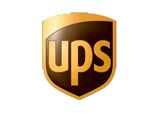Some of you have been inquiring about Commercial Invoice recently.
Why is it so important? Well, it is the primary document used by most foreign customs agencies for shipping all non-documents internationally. That importance is why we have decided to compile a list of resources – a cheat sheet, if you will – that can answer questions and provide further resources.
It’s not the only required document for sending an international shipment, however. The other documents include, Export Declaration (B13A), Certificate of Origin, and the Toxic Substances Control Act form. (Note: When printing from within Stone Edge, you will have everything you need to ship internationally, but if their are ever any concerns or questions, feel free to contact us. We are more than happy to help). But for now, let’s dive into the details about Commercial Invoice. Here’s what the experts have to say:
Sources:
- FedEx
- UPS
- USPS
Overview
It is important to ensure that information on all your documents is consistent and accurate, starting with the Commercial Invoice. It is the foundation of all other documents and is the first international shipping document that should be completed. The information provided on other international shipping documents, including the air waybill or shipping label, must correspond with the Commercial Invoice.
What is it?
The Commercial Invoice is prepared by the exporter and is required by the foreign buyer to prove ownership and arrange for payment. FedEx provides separate Commercial Invoices forms for use with FedEx Express® and FedEx Ground® international shipping.
Why is it needed?
It is the primary document used by most foreign customs agencies for import control, valuation, and duty determination.
When is it needed?
The Commercial Invoice is required for all product/commodity (non-document) shipments for international trade.
More resources from FedEx:
- More information on Commercial Invoice and the other common international forms can be found here.
- You can also call 1-800-463-3339. Say “International” when prompted in the menu to be connected to FedEx International.
A commercial invoice form is used for all shipments containing non-documents. The commercial invoice is the primary document used for importation control, valuation, and duty determination. This document identifies the products being shipped.
The form should include:
- Complete name and address information for both shipper and consignee.
- Phone numbers for both shipper and consignee.
- Terms of Sale (Incoterm).
- Reason for export.
- A complete description of the item.
- What is the item?
- What is the item used for?
- Harmonized Tariff Codes, if known.
- Country or territory of origin (where manufactured) for each commodity.
- Number of units, unit value, and total value (purchase price) of each item.
- Number of packages and total weight.
- Shipper’s signature and date.
A nominal or fair market value must be stated for items of no commercial value.
More resources from UPS:
- You can download UPS’s Commercial Invoice Guide here.
- A sample invoice can be found here.
- You can also call UPS 1-800-811-1648 for questions about international shipping.
The commercial invoice is the customs declaration form for Global Express Guaranteed (GXG). Both consumer and commercial shippers need to use this form when customs declaration is needed for GSG.
FYI – PS Form 6182, Commercial Invoice, now has a unique barcode number. You may no longer print this form from the Internet. You must order hard copies of the form for use or if you have an immediate need, you may pick up a barcoded PS Form 6182 at your local Post Office.
More resources from USPS:
- Commercial Invoice and Completion Instructions.
- USPS Customs Forms Online Manual.
- International Inquiry 1-800-222-1811.



